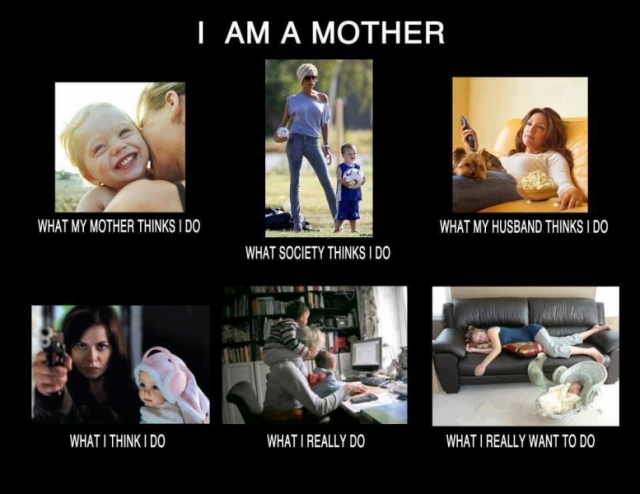Anastasia Balezdrova
A holiday when women have fun as never before, the Mother's Day, a day for the expression of rude jokes by men or a day for reflection on the social and professional status of women?
Today, social media are literally overflowing with images of flowers and wishes, sincere expressions of gratitude to women as well as wits such as "But when is the men’s day?," which clearly show that a vast majority of the users have no idea of how and why this day has been confirmed.
One of the misconceptions is that 8 March is the Mother's Day. So, the collage that made quite a stir some time ago has appeared in the social networks again, but this time the main character is the mother.

The technological revolution has greatly facilitated the heavy responsibilities of women for the maintenance of their home. Household duties continue to be considered their field of performance.
"Nevertheless, the feminist revolution is the only one in the 20th century that succeeded in its main objectives. If your grandmothers could see you they should have envied you", wrote in his Facebook profile one of the most prominent representatives of the contemporary Greek literature Christos Homenidis.
However, what has changed in the social and professional status of women 156 years after the protest of female workers in the textile industry in New York and the first celebration of the Women's Day in Copenhagen on March 1911?
Veteran journalist Rihardos Someritis answers the question with the following questions:
"1. Why are women the first on the list of dismissals?
2. Why do women occupy a small part of the positions in the government, local administration and parliament?
3. Why does the burden of caring for the family and children fall on women?"
The Women's Day was initiated by the German socialist Clara Zetkin with the idea of celebrating the day of working women and their international solidarity in one of the first Sundays in the spring every year so that they could be mobilized to fight for equality with men in all spheres of public life. Today, women are different: they are educated, skilled, ready to give the best of themselves. But this is not enough either.
Another image that has very timidly squeezed among the ones of flowers, greetings and promises of wild celebrations shows how insignificantly the social status of women has changed since then. A summary table of data from the European Commission, the European Statistical Service and the European Parliament gives a clear picture of the attitude to women in the 27 member states of the European Union.

"Activism is a difficult thing, not all women can endure and so, it is not necessary to require it from all. Those who endure, however, go out on behalf of all others: the mothers, the unemployed, the beaten ones. It is enough that we are women. Accordingly, any success of any woman affects us all. It has to bring joy, not envy. Societies, even the western ones, continue to put up with the discrimination against women. That is why we should not cease to fight even for a moment," wrote one of the most active women in the Greek social networks Vivian Evtimiopoulou.
There were also publications about the serious violations of women's rights for religious reasons, such as the beating of a woman in the Maldives because she was raped. Even more terrifying is the practice of circumcising their genitals, which many Muslim countries are still applying. According to UNICEF, at least 120 million girls and women have experienced such "interventions".
Then a tweet from commentator Grigoris Farmakis, whom the readers of GRReporter know followed, "Today is not only the women’s day but also of the fathers of daughters." The idea of the Women's Day is the realization that women should be accepted as equal, not as the stereotype of the "weaker" sex. So, Happy Women’s Day!